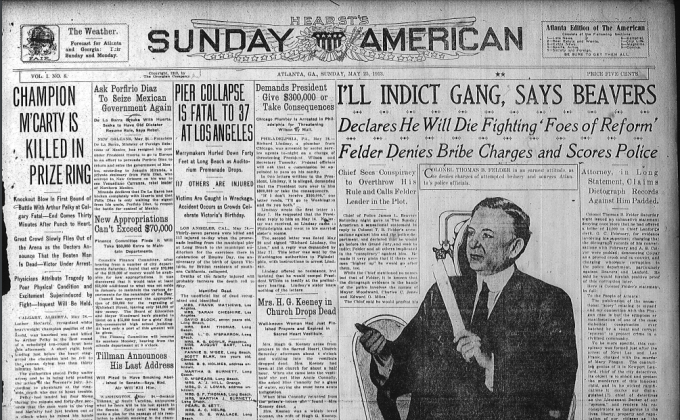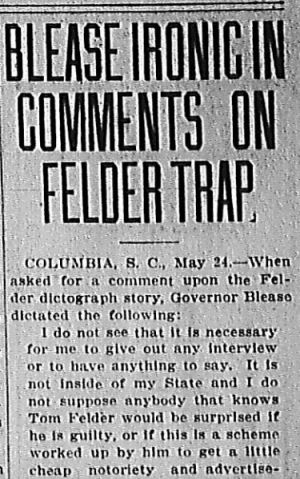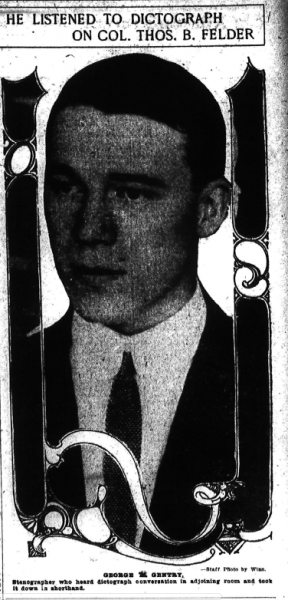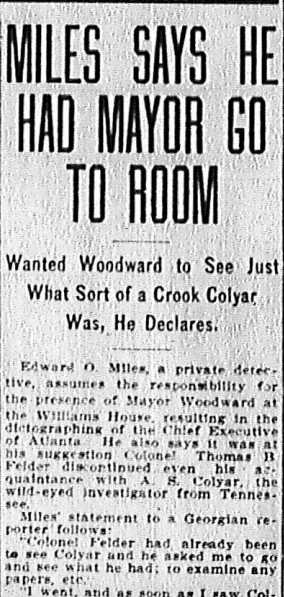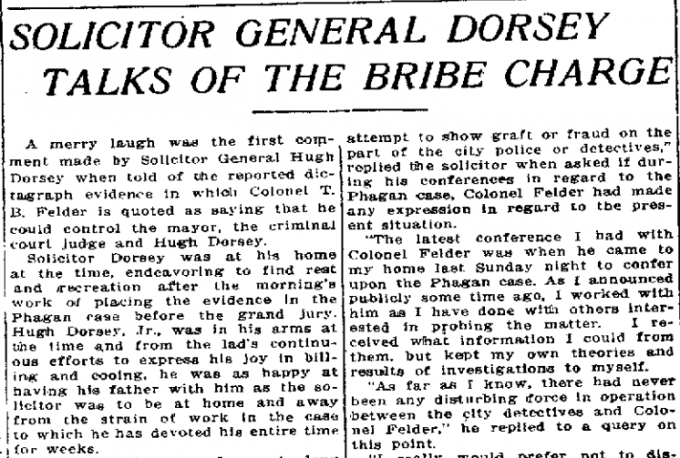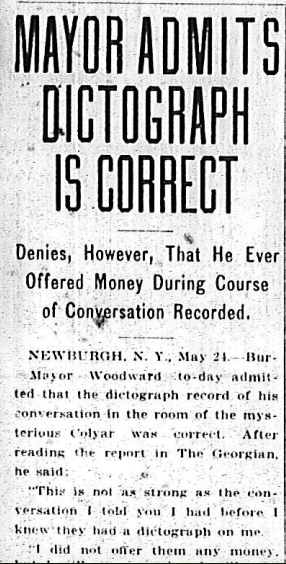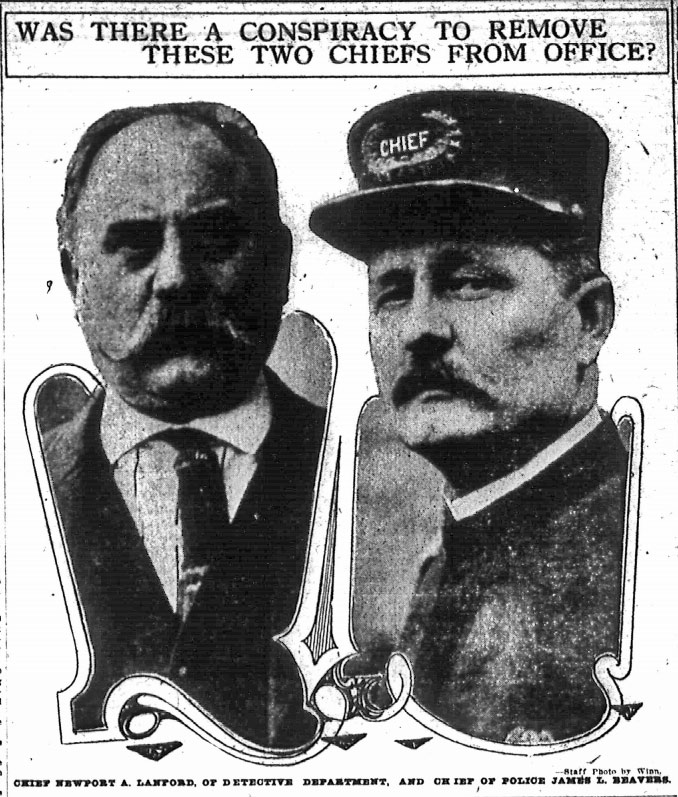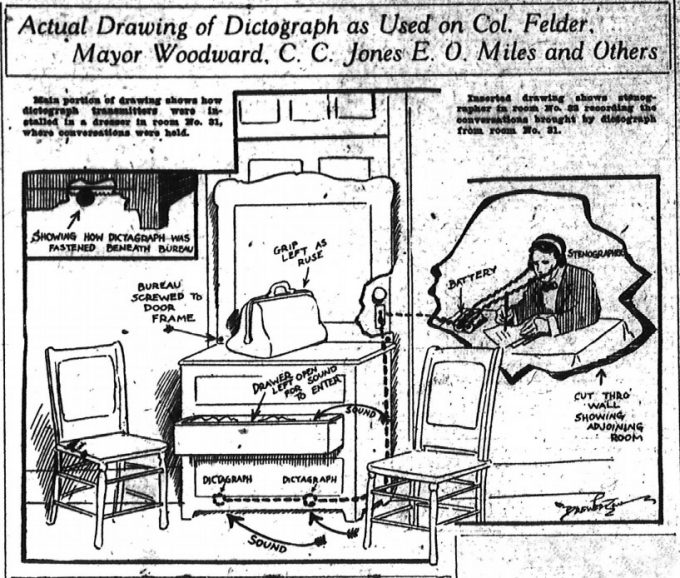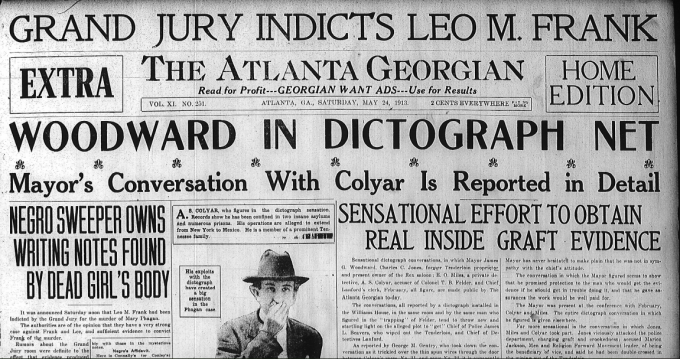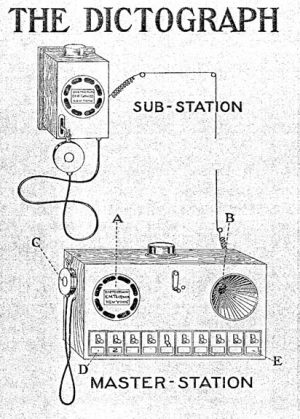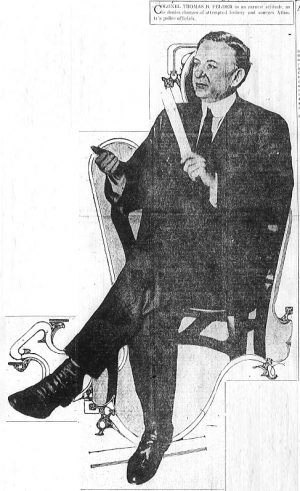
Colonel Thomas B. Felder in an earnest attitude, as he denies charges of attempted bribery and s[c]ourges Atlanta’s police officials.
Atlanta Georgian
Sunday, May 25th, 1913
Colonel Thomas B. Felder Saturday night issued an exhaustive statement denying once more that he had offered a bribe of $1,000 to Chief Lanford’s clerk, G. C. February [sic], for evidence involving his superiors; charging that the dictograph records of his conversations with February and A. S. Colyar were padded; denouncing Colyar as a proved crook and ex-convict, and charging wholesale corruption in the police department, particularly against Beavers and Lanford. He said he would furnish positive proof of this corruption later.
Here is Colonel Felder’s statement, in full:
To the People of Atlanta:
The publication of the sensational “story” relating to myself and my connection with the Phagan case is but the symptom of manifestation of one of the most diabolical conspiracies ever hatched by a venal and corrupt “system” to protect crime in a civilized community.
To be more specific, this conspiracy was formed just after the arrest of Newt Lee and Leo Frank, charged with the murder of Mary Phagan. The controlling genius of it is Newport Lanford, chief of the city detectives. Its object is to shield and protect the murderers of this innocent child, and in its wicked ramifications it marks our distinguished (?) chief of detectives as the Lieutenant Becker of our “system,” and renders his co-conspirators as dangerous to the lives, liberty, property and reputation of our citizens as the bloody and deadly Society of the Mafia.
Pity it is that the press of the city has been and is being made the innocent, if effective, instrument in their hands to further and effectuate the object of this wicked conspiracy by prostituting their potential columns to the exploitation of the mass of forgeries, and perjuries which has been given to the public through their columns, for it is known that these papers have tacitly sanctioned the utterances of Colyar by reproducing his affidavits in the face of the fact that [t]he editors and proprietors of all would, without hesitation, swear that they would not believe him on oath if called upon to do so.
Says Police Shielded Frank.
Strangely enough, a portion of the criminal record of this man Colyar is reproduced, showing him to be a man steeped in crime and infamy, while in the parallel columns is published his defamatory utterances against me. Continue Reading →

